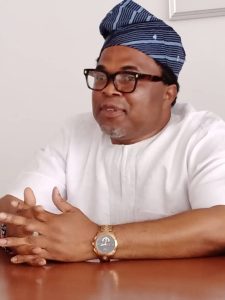
The Africa Association of Professional Freight Forwarders and Logistics of Nigeria (APFFLON) has commended the Comptroller General of Customs, Bashir Adewale Adeniyi, and the Nigeria Customs Service (NCS) for suspending the controversial 4% Free On Board (FOB) levy on all imported goods into the country. The levy, introduced last week citing Section 18(1)(a) of the Nigeria Customs Service Act (NCSA) 2023, had sparked widespread criticism from the business community and stakeholders, who argued that it would increase the cost of doing business and further burden importers.
Following a week of intense debate and pressure, the NCS announced the suspension of the levy to allow for comprehensive stakeholder engagement and consultations on the implementation framework of the Act. APFFLON’s National President, Otunba Frank Ogunojemite, praised the Comptroller General for his humility and willingness to listen to constructive criticism, describing him as a “true leader” for reversing the decision.
Ogunojemite stated, “It takes humility for a man to listen to constructive criticism, admit error in his action, and take a step further to reverse and correct himself. By this suspension, the CG has proved himself a true leader.” He emphasized the need for the NCS to engage stakeholders effectively during the suspension period to ensure a mutually beneficial resolution. He also urged the NCS to consider palliative measures to cushion the impact of the levy on the business community before reintroducing it, ensuring that stakeholders are adequately prepared.
In addition to addressing the customs levy, Ogunojemite appealed to the Nigerian Ports Authority (NPA) to reconsider its planned 15% increase in charges, citing the current economic challenges faced by Nigerians. He argued that such an increase would exacerbate the hardships caused by the removal of fuel subsidies, inflation, high living costs, and other recent economic policies. He said, “Increment in charges of any kind at this period is ill-timed and ill-advised considering that Nigerians are grappling with so many challenges, including the removal of fuel subsidy, floating exchange rate, inflation, high cost of living, 50% increment by the telecom industry, increase in electricity tariff, the new tax bill, among others. It’s the same people that are being targeted with all these increments even though their earnings remain the same.”
He called on the NPA to prioritize the welfare of Nigerians and the growth of the economy by halting the planned increment. Furthermore, Ogunojemite raised concerns about the skyrocketing cost of procuring the Eto Call-up system, which has become unaffordable for many truck drivers. He warned that this development could lead to port congestion, inefficiency, and increased costs, ultimately undermining the Ease of Doing Business initiative.
He stated, “We can’t be talking about a robust economy with policies and actions which seek to impoverish Nigerians. Such development cannot take us anywhere; rather, it would drive away investors and kill businesses in this country. Eto is now causing an impediment to the Ease of Doing Business at the port, and you can’t be talking about Ease of Doing Business when the cost of getting Eto is now up to two hundred thousand naira (N200,000). This development can only lead to congestion at the port and further make our ports inefficient and costly.”
Ogunojemite urged the NPA and Truck Transit Parks Limited (TTP) to review the cost of the Eto Call-up system and emulate the NCS by suspending policies that negatively impact the people. He pleaded, “I therefore appeal to both NPA and TTP to take a holistic look at this development and emulate the Nigeria Customs Service in suspending some of these anti-people policies and actions for a virile and robust port system in Nigeria.”
In conclusion, Ogunojemite stressed the importance of creating a business-friendly environment that supports economic growth and alleviates the suffering of Nigerians. He called for collaborative efforts between government agencies and stakeholders to ensure a robust and efficient port system in Nigeria.















